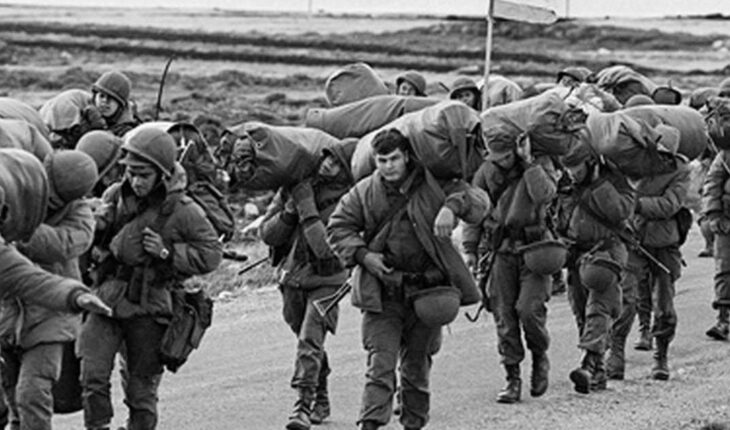Richard Norton Taylor, a journalist who wrote for three decades in the Guardian newspaper on security and defence, published a lengthy article on Monday entitled “Declassified UK”. The note reveals unpublished data from the Falklands War and indicates that, by mid-May 1982, the British aircraft carrier HMS Hermes had 18 nuclear weapons on board and the aircraft carrier Invincible had 12; while the auxiliary ship of the Royal Fleet, Regent, owned one.” The ships were within the ‘Total Exclusion Zone’ imposed by Britain around the Falkland Islands,” the documents say. What is seen in the documents allows to complete the story told in great detail since, in 2003, Britain admitted that several of the ships that former Prime Minister Margaret Thatcher sent to the South Atlantic to forcibly evict the Argentine military, carried atomic weapons.
That same year, the British Ministry of Defence also acknowledged that there were “incidents” in the transport of these weapons, such as containers damaged in their transfers, without harming the armament. Professor Sir Lawrence Freedman, the official British historian of the Falklands War, also wrote in this regard when he acknowledged that nuclear weapons were dispatched from Gibraltar to the islands. He notes that the issue contained in his country’s National Archives was marked “Top Secret Atomic.” And that this issue caused “panic” and discussions among London officials about the physical damage that weapons could cause and also about the kind of political decisions that were convenient for them or not to make. In turn, it indicates that an act of the Ministry of Defense (MoD), dated April 6, 1982, referred to the “great concern” that some of the “nuclear bombs of depth” could “be lost or damaged and the fact made public.” The minutes, Norton Taylor added, said that “the international repercussions of such an incident could be very damaging.”
A dispute broke out between the Ministry of Defence and the Foreign Office, which asked the former to “disarm” the armament. But the Navy refused, Norton notes in “Declassified UK.” Following this, the Foreign Office became concerned that the presence of nuclear weapons in the South Atlantic would violate the 1967 Treaty of Tlatelolco, which established a nuclear-weapon-free zone in Latin America and the surrounding waters, including the Falklands. according to Norton’s research, he stated, “In the event of tension or hostilities between us and the Soviet Union at the same time as Operation Corporate (the code name given to the liberation of the Falklands), the military capability of our warships would be drastically reduced.” Norton points out that for the British military, even if there was no contamination in case of a damaged or sunken nuclear weapon, the Argentines could get hold of nuclear technology and “we could have had to face great embarrassment in the field of non-proliferation.”





